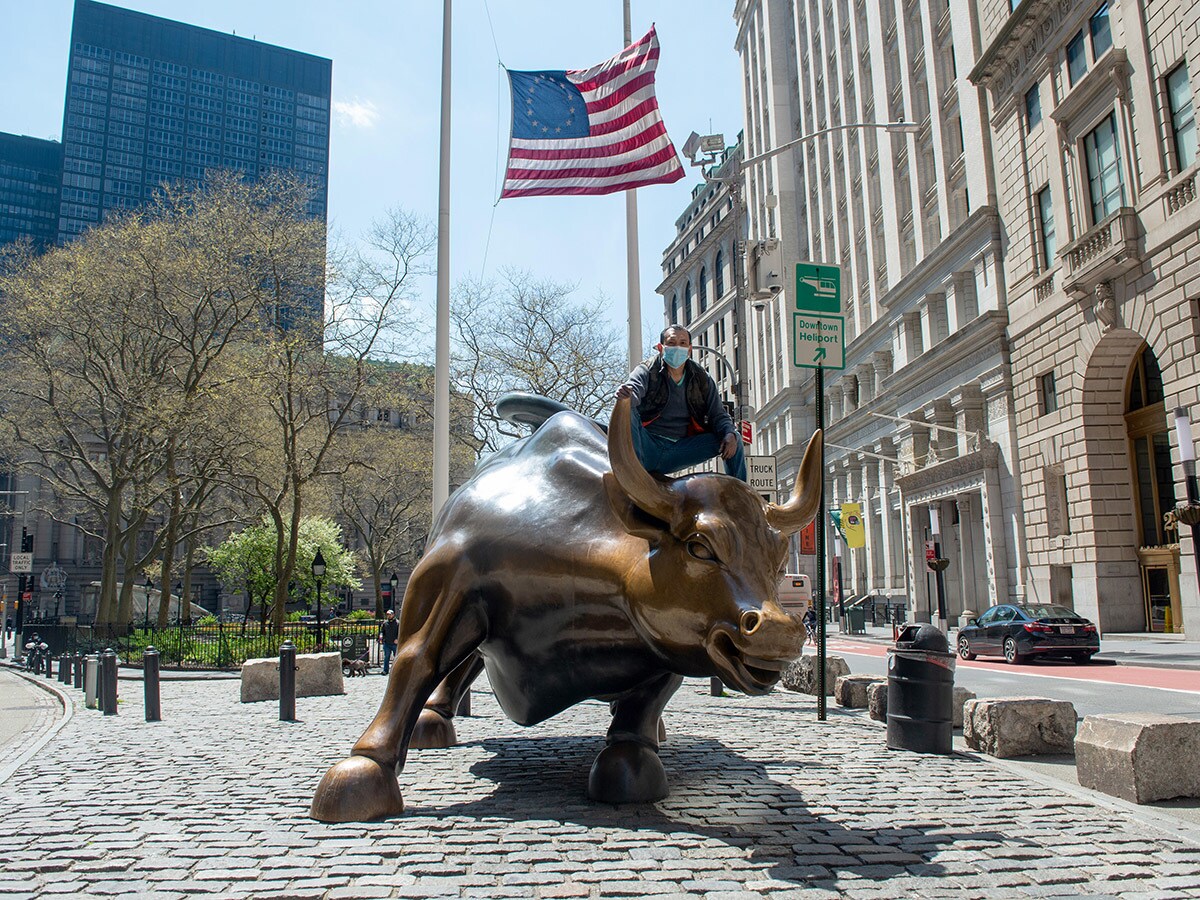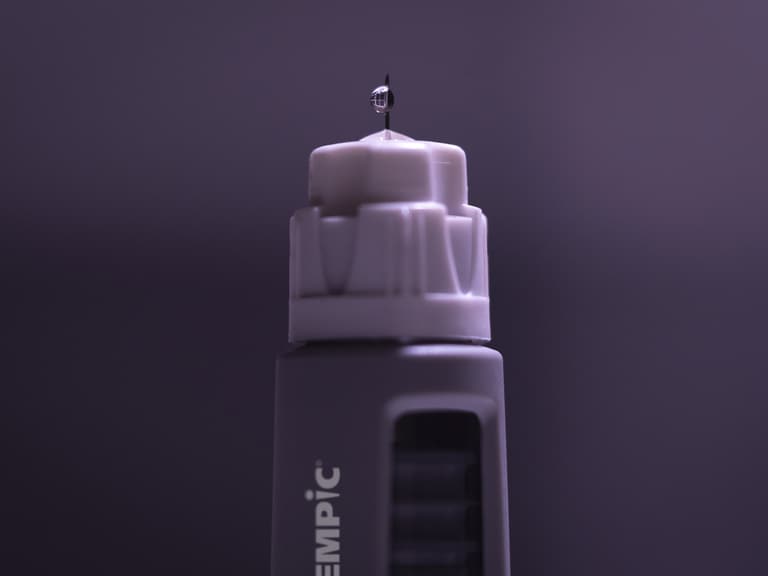Big sell-offs, tumbling prices and nervous stock market investors. The financial impact of the COVID-19 pandemic has been enormous. When will recovery come, and what will it look like?
The coronavirus has had a catastrophic impact on the world’s financial markets, sending share prices into free-fall. But now, some signs of hope are emerging. So far in April, the Dow Jones has risen by 10.8% and the S&P 500 by 12%. The stock market appears to be adjusting to this strange new normal – and now investors want to know what shape this recovery will take.
According to research by Goldman Sachs [GS], GDP in the US will shrink 5% in Q2 2020, while a return to pre-virus levels isn’t expected until the end of 2021 at the earliest. A similar scenario is expected to play out in the Eurozone.
5%
Predicted shrink of the US GDP in Q2 2020
While Goldman Sachs sees a case for a V-shaped stock market recovery, it could also be U or L-shaped. The curve depends on how the virus is contained over the coming weeks and months, and the measures companies take to continue to weather this storm.
The idea that stock markets could come roaring back from this temporary slump, as Goldman Sachs suggests, has been dismissed by Caroline Baum. Writing in MarketWatch, she thinks it’s likely that any market stability will be hampered by a possible resurgence of the virus in the second half of the year — the autumn and winter in the Northern Hemisphere.
“Digging out from the deep hole won’t be quick or easy. The Great Recession ended in June 2009, but real [GDP] didn’t eclipse its fourth-quarter 2007 peak until the second quarter of 2011,” Baum says.
The situation is likely to be exacerbated further by increasing unemployment levels, brought about by ongoing social distancing measures and business closures, leaving consumers with reduced spending power.
“It took almost five years from the June 2009 recession trough for employment to get back to its pre-recession peak. It’s not far-fetched to anticipate a similar slog this time around,” Baum adds.
“It took almost five years from the June 2009 recession trough for employment to get back to its pre-recession peak. It’s not far-fetched to anticipate a similar slog this time around” - Caroline Baum
Should investors remain defensive?
For now, the challenge facing stock market investors is deciding what strategy to take amid this uncertainty.
Some analysts and experts believe a patient and defensive approach is a good position to take until conditions improve. Joe Fahmy, managing director of Zora, is one of them.
“[Remaining defensive] encourages people to protect capital, protect confidence, minimise trading, and keep a watch list. All of these are important but minimising trading is imperative so you don’t get tossed around with this unprecedented volatility,” Fahmy writes in Yahoo Finance.
He thinks that the stock market won’t see an upward trend until the number of coronavirus cases are decreasing on a consistent, daily basis and until a vaccine or drug treatment of some sort has been developed and approved.
The recent decision to cut interest rates has helped give investors some confidence back. “When the coronavirus fears eventually subside, consumers around the world will come storming back and the global stock markets will recover strongly. Here’s the best part: The equity friendly environment that we were previously in will be on steroids,” Fahmy adds.
“When the coronavirus fears eventually subside, consumers around the world will come storming back and the global stock markets will recover strongly. Here’s the best part: The equity friendly environment that we were previously in will be on steroids” - Joe Fahmy, managing director of Zora
For George Trefgarne, CEO of Boscobel & Partners, when a recovery does eventually happen “those investors who have had the patience to hold on for better times, could be rewarded with strong returns,” he writes for Hargreaves Lansdown.
Is an offensive strategy worth taking?
Elsewhere, Howard Marks, co-founder of Oaktree Capital Management, said in a note that although it’s not certain how much worse the situation might get, now is not the best time to play defensive.
“I’m not saying the outlook is positive. I’m saying conditions have changed such that caution is no longer as imperative,” Marks says.
“I’m not saying the outlook is positive. I’m saying conditions have changed such that caution is no longer as imperative” - Howard Marks, co-founder of Oaktree Capital Management
“We're buying today when we find good value,” he writes, adding that now is the time to stop playing defence. The strategy that he believes is more likely to pay off is to take an offensive approach and invest in bargains — Marks was once described by the Financial Times as “the ultimate bargain hunter”.
Whether investors choose to go down the defensive or the offensive route, the length of the road to market recovery is still unknown. There could be many more bumps along the way.
Fahmy is optimistic about the future, however. “When the coronavirus fears subside, we will not only be left with tons of pasta and toilet paper, but we will also be in one of the most favourable stock market environments in history.”
“When the coronavirus fears subside, we will not only be left with tons of pasta and toilet paper, but we will also be in one of the most favourable stock market environments in history” - Joe Fahmy
Which are the good and bad stocks?
Although analysts and experts are still unsure about whether the market has yet to reach a bottom, many investors are likely to be remaining bullish and, at the very least, adopt a long-term view of investing.
Nasdaq has analysed TipRanks’ database and identified three stocks that it believes could lead a market recovery. All three are companies in the healthcare and medicine industry that are helping in the fight against COVID-19. They are Abbott Laboratories [ABT], Johnson & Johnson [JNJ] and Gilead Sciences [GILD].
Meanwhile, Goldman Sachs has advised its clients not to invest in stocks receiving COVID-19 government relief aid, according to CNBC. While financial support would prop these stocks up in the short term, history shows that companies on the receiving end of such support tend to perform worse than the broader market over the following 12 months.
With e-commerce boosted by lockdowns and the closure of physical retail spaces, analysts and experts have been putting forward their recommendations for the best e-commerce stocks to invest in. Leo Sun, writing in the Motley Fool, has picked out Square [SQ], Amazon [AMZN] and JD.com [JD].
Continue reading for FREE
- Includes free newsletter updates, unsubscribe anytime. Privacy policy





